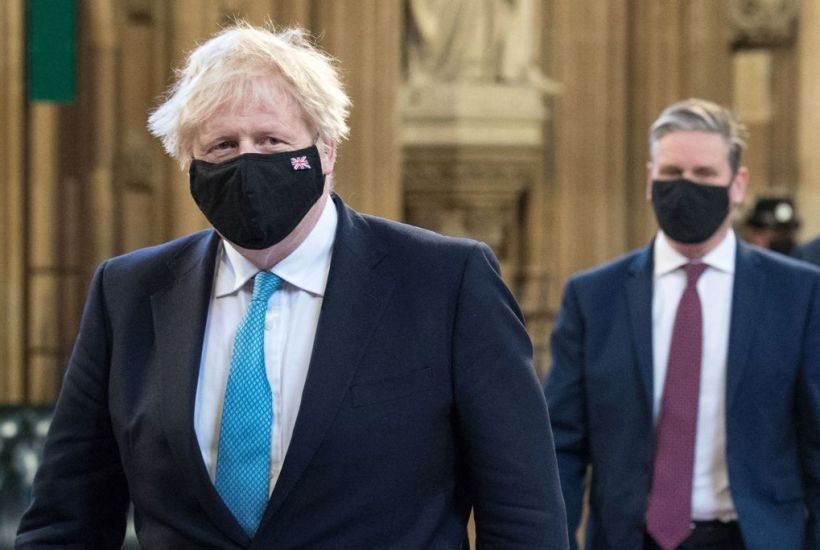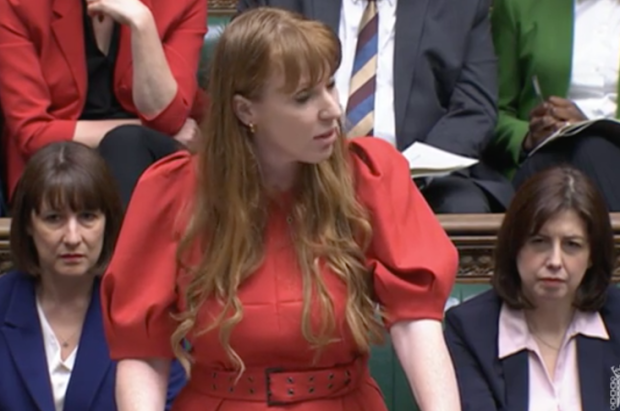How should Keir Starmer deal with a problem like Boris Johnson? Despite the Prime Minister’s mistakes in the handling of the pandemic – and a string of embarrassing stories about his private life and finances – Boris seems unassailable. Johnson is seen as best suited to be Prime Minister by 40 per cent of voters compared to just 23 per cent for Starmer; most surveys give the Tories a double digit lead over Labour.
Party leaders receive much unsolicited and often useless advice. Starmer is not alone in that. Over the years, Sun Tzu’s The Art of War has been scoured for helpful aphorisms, while Machiavelli’s The Prince is still seen as a repository of sage advice. But relevance – and obscurity – are often a problem with such sources. One of Machiavelli’s suggestions, that a leader should ‘be a fox to discover the snares and a lion to terrify the wolves’, might make sense to a sixteenth century Florentine duke but try explaining it to Nick Clegg.
So Starmer might look closer to home for more useful lessons – and particularly to 1945 when Labour achieved one of its rare election victories.
Before the 1945 campaign began, most pundits confidently predicted the return of a majority Conservative government led by Winston Churchill, the man many credited with playing a critical role in defeating Germany. Churchill was a charismatic and beguiling figure, one whose past suggested progressive and reactionary instincts.
If he was a Conservative, he was hardly a conventional one, having spent much of the 1930s opposing his own leaders’ policy of appeasement. Often short of money and with a remarkable way with words, it is no wonder Johnson has evoked comparisons with his illustrious predecessor. How Labour won in 1945 might therefore provide a blueprint for the approach Starmer needs to fix his Johnson problem.
For Labour did not beat Churchill; instead, it defeated the Conservative party. Had 1945 been a presidential election, there is little doubt Churchill would have won hands down. Certainly, despite being deputy prime minister since 1940, Labour leader Clement Attlee had made little impact on the public: one January 1945 poll suggested only four per cent wanted him to lead any post-war government.
Conservative strategists consequently hoped to make 1945 a presidential contest in all but name: the party’s manifesto was even called Winston Churchill’s Declaration of Policy to the Electors. They hoped to hide their party behind Churchill, for interwar Conservative governments had pursued policies which, had it not been for the Miracle of Dunkirk, would have led to defeat at the hands of Hitler.
Yet such was the dead weight of this dire record, even Churchill could not pull his party over the finishing line. It was Labour’s focus on Conservative policy failures and its own positive alternative – ‘Let Us Face the Future’ was the name of its manifesto – that won Attlee the election, not attacking Churchill: quite the reverse.
Attlee’s approach is best illustrated by his response to a now-infamous radio broadcast during the campaign. During the recording, Churchill fell foul of his own love of rhetoric when he claimed a Labour government would ‘have to fall back on some form of Gestapo’.
Attlee’s Zen-like response the next day to this over-the-top attack only helped to seal the deal for many voters. He suggested such words were unworthy of Churchill ‘the great leader in war of a united nation’, as he put it. That was because, he suggested, they were not Churchill’s words at all but those of Lord Beaverbrook, one of the most partisan of Conservative figures at that time.
Who knows what the future holds? This time last year it was Starmer who was riding high as Johnson struggled to cope with the pandemic. Perhaps Johnson’s current ascendency is all to do with his government’s successful vaccination programme?
Whatever the direction of this shifting landscape, Johnson poses a unique problem for Starmer, as the 2019 general election and recent Hartlepool by-election prove, he really can touch parts of the electorate no other Conservative can reach.
Labour’s 1945 campaign suggests how the party can deal with its Johnson problem.
First, Labour should, so far as possible, ignore him, and so avoid getting drawn into his messy world. Labour’s attempt to exploit the Prime Minister’s complicated financing of the redecoration of his accommodation in Number 10 only saw his ratings rise.
Right now, the kinds of Red Wall voters Labour needs to win back think well of the Prime Minister. They imagine him to be the hero of the war on Covid: they even believe his promise to Level Up. Instead, of being seen looking at wallpaper in John Lewis, Starmer needs to focus on developing a clear set of serious and positive policies which resonate with voters.
Second, if it cannot ignore him, Labour should do as Attlee and use Johnson’s reputation with such voters against him and his party, and use it the better to highlight Conservative ministers’ inevitably flawed progress.
It might stick in his craw, but the best thing Starmer can do just now is to take Johnson at his word and his alleged best intentions. As Attlee did with Churchill the wartime hero, Starmer should praise Johnson so he can bury him.
Got something to add? Join the discussion and comment below.
Get 10 issues for just $10
Subscribe to The Spectator Australia today for the next 10 magazine issues, plus full online access, for just $10.



















Comments
Don't miss out
Join the conversation with other Spectator Australia readers. Subscribe to leave a comment.
SUBSCRIBEAlready a subscriber? Log in